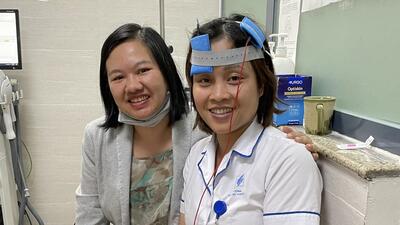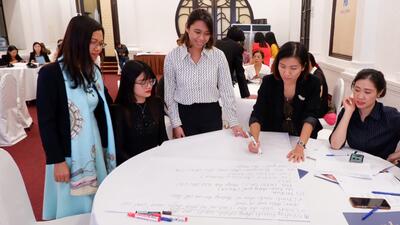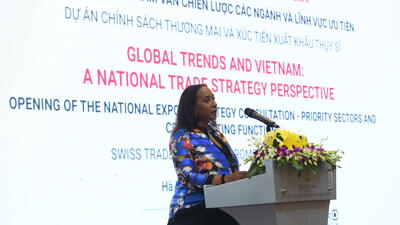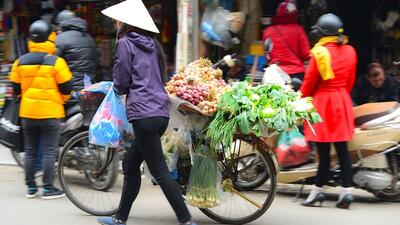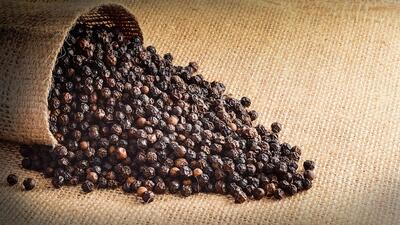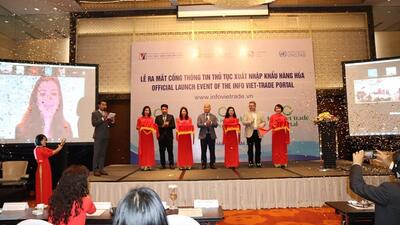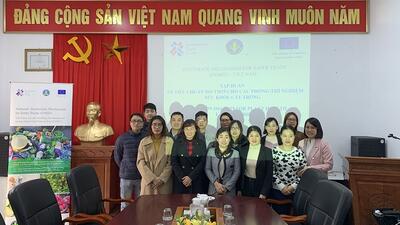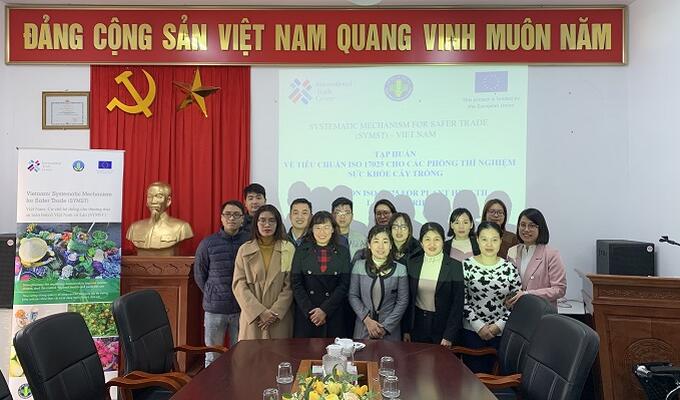
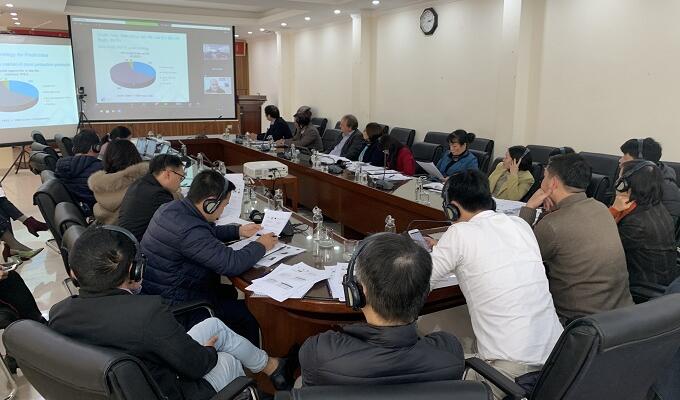
Viet Nam moves forward in safe exports of fruits and vegetables
The EU-Vietnam Free Trade Agreement entered into force on 1 August 2020 and includes a clear commitment to tackle market access barriers for exports of fruits and vegetables.
To help them succeed in this, Viet Nam authorities joined the International Trade Centre's Systematic Mechanism for Safer Trade (SYMST). Financed by the European Union (EU), this project, also implemented in Lao PDR, looks at sanitary and phytosanitary (SPS) import requirements and procedures for fruits and vegetables.
This support was kick-started by two recent parallel events, organized by the Vietnamese Plant Protection Department of the Ministry of Agriculture and Rural Development (acting as the National Plant Protection Organization), together with the International Trade Centre (ITC).
A closer look at sanitary and phytosanitary measures for the European Union market
A workshop on sanitary and phytosanitary measures for plant-origin exports to the European Union attracted around 50 participants, in person and online, from a wide range of stakeholders, including state management agencies, non-governmental organizations, international organizations, associations and the private sector. The workshop gave an overview of SPS regulations for plant-origin products in the EU and Viet Nam and identified compliance gaps.
Ms. Ludovica Ghizzoni, ITC adviser on quality and SYMST project manager, introduced the project's approach and said: 'Systematic Mechanism for Safer Trade complements ITC's ongoing collaboration with Viet Nam, to provide skills and knowledge for the participating companies so they can improve their market access opportunities.'
The workshop identified activities that improve plant-origin exports to the EU, targeting the value chains of pomelo, black pepper and dragon fruits. With export potential to the EU these products will serve as pilot models to improve practices and controls for plant health and pesticides.
The European Commission Attaché, EU Delegation to Viet Nam, Mr. Matthieu Penot, said: 'The European Union is very proud to sponsor the Systematic Mechanism for Safer Trade; it comes at the right time, as Vietnam seizes new opportunities offered by the EU-Vietnam Free Trade Agreement. The project will add value to exports through better food safety and quality management.'
The leader of the National Plant Protection Organization highlighted the significance of the project and expects it to make an important contribution in mitigating phytosanitary and food safety non-compliance of plant-origin products, especially as the Free Trade Agreement creates many opportunities for bilateral trade.
Ms. Nguyen Thi Thu Huong, Deputy Director General of the Plant Protection Department, commented: 'This new approach allows stakeholders from both the public and private sectors to deal with plant health and pesticide issues in trade in a safer way, promoting agricultural product exports and mitigating non-compliance as well as refusal at points of entry in the EU.'
Mr. Nguyen Van Son, Chairman of Viet Nam Pesticide Association, said: 'I expect that SYMST will help Viet Nam enhance the awareness of producers and capacity of management agencies, which helps Vietnamese products meet the increasing requirements of importing markets, especially the EU.'
ISO certification
A four-day training on ISO/IEC 17025:2017, with 15 participants from three plant health laboratories, looked at related procedures for ISO 17025 accreditation next to systematic and technical documents for reliable plant quarantine diagnostic results.
The training also built capacity to upgrade some plant health laboratories to be accredited against the ISO/IEC 17025:2017 standard for identifying pests, making a contribution to sustainable agricultural production and exports.
Looking forward
The two events launches the SYMST project in Viet Nam. During the course of the project, which will run until October 2022, the focus will be on strengthening the regulatory framework for plant health control, on the reduction of pesticide use in the targeted sectors and on the improvement of technical capabilities of regulatory and control institutions across Viet Nam.




